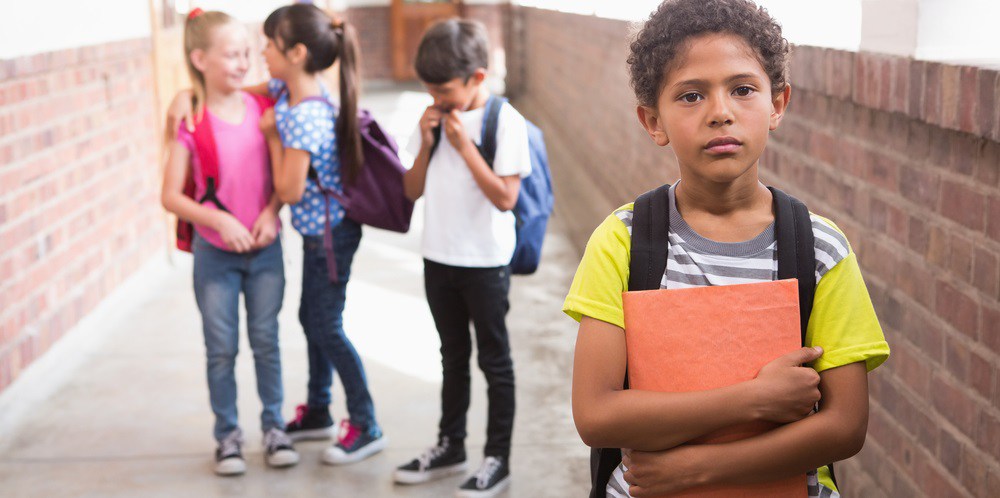It’s that time of year again: children up and down the country prepare to head back to school for the start of a new academic year. Whilst this should be an exciting time for students; collecting new stationary sets to use on their first day and the prospect of seeing their friends after the long summer holidays, recent polls reveal that the majority of students (46%) fear going back to school, and the bullies which come with it.
What is bullying?
Bullying extends to a range of hurtful behaviours, claims the Welsh government, including: physical violence; verbally abusive comments regarding another person, either to their face or in the form of spreading mean rumours. In the digital age we are now in, where more and more children have access to online messaging, cyber-bullying is also a significant problem.
This means that bullying can occur in the playground and the classroom, as well as outside of school hours; following victims home from school and making it feel inescapable.
Who is affected?
Recent surveys reveal that a shocking 40% of secondary school pupils have been bullied for their academic ability, impacting their willingness to take part in class discussions and volunteering answers. Additionally, 22% of pupils affected by bullying have had to change schools to get away from the hurtful behaviour. As well as academic ability, a survey by Barnardo’s Cymru (2013) discovered that more than half of Welsh children have witnessed bullying based on sexuality, ethnic background and disability. This statistic was supported by anti-bullying charity, Ditch the Label, who found that children coming from ethnic backgrounds were at higher risk of being bullied than Caucasian children.
As well as the disruption to studies which can have significant impacts on pupils’ grades and exam results, what is more important to consider is the negative and emotional impact bullying can have on students’ mental health – affecting their confidence and self-belief – which may have longer-term implications for pupils as they grow into adulthood.
Just an issue for students?
Bullying – as these statistics reveal – is clearly a complex issue, which is still shockingly prominent in schools today. Unsurprisingly then, this is a difficult time of the year for parents too; who become teary-eyed waving their children off every day anyway, without the additional worry that their children are spending so much time in a negative and unsafe environment.
Add to this the recent, devastating story of a 9-year-old American taking his own life as a result of homophobic bullying after days of returning to school covering the UK news and social media feeds, it is not surprising parents are adamant that UK schools need to do more to prevent bullying.

Closer to home: how Welsh schools are tackling bullying
Whilst schools across the nation continue to take part in Anti-Bullying Weeks, and the Diana Award – a peer-mentor scheme which has successfully reduced bullying in the 2,500 schools it has been implemented in, Welsh schools are taking additional steps to aid the cause.
Education Secretary, Kirsty Williams in late 2017 campaigned to encourage schools to incorporate teaching healthy relationships to children into the curriculum in Wales. The plan was to inform children about different sexualities, genders and sexism; based on the standpoint that increasing understanding reduces stigma and the need to bully based on difference. Similarly, another Welsh initiative focused on producing an online resource providing information about positive relationships. As yet, it is not clear how far these campaigns have reached and whether or not they have been successful.
Additionally, a quick trip to Google shows that there have been a lot of initiatives planned both in Wales and nationally; including high-profile campaigns, such as #Back2School, where celebrities discuss their experiences of being bullied and how they overcame it.
However, we really must ask: are these messages actually reaching the younger generations and deterring bullies?

What can we do?
It seems that tackling bullying in schools is a two-pronged issue.
Firstly, we need to prevent and deter it in the first place. We need to question whether sending bullies to detention or isolation rooms really works? Do we need to take a more holistic look at why they feel the need to bully? In this sense, the proposed initiatives of incorporating healthy relationships and lessons on respecting others of different religious backgrounds and sexualities into national curriculums seems a positive way to tackle this issue. But they need to be campaigned harder for in order for such messages to reach children.
Secondly, we need to provide better support, in school and at home, for those who suffer from being bullied, to avoid long-term negative implications on the child’s life. Increasing communication between parents and schools is necessary to allow children to feel safe in both environments; whilst encouraging victims to talk about their situation would remove the stigma of being bullied and help them feel like they’re not alone; reducing the long-term impact on their mental health.
We may still have a way to go, but by working together parents and schools can tackle bullying.










